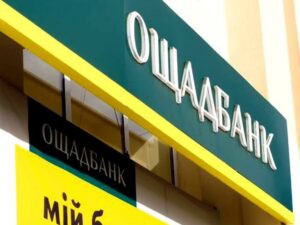
Ukraine may return to the idea of attracting European and American companies to manage its gas transmission system (GTS), Advisor to the Minister of Energy of Ukraine Lana Zerkal has said, expressing this opinion on the air of ICTV TV channel.
“This may be the same idea that was in 2019 for a joint consortium involving European and American companies to use the Ukrainian pipeline,” the ministry’s press service said, citing her.
According to Zerkal, this step will contribute to the lifting of Gazprom’s export monopoly on gas sales, since European consumers will have access to the GTS, deciding which gas supply route is more profitable for them.
“This is a geopolitical problem and it must be resolved at the geopolitical level using mechanisms inherent in geopolitics. Nord Stream 2 has become a stumbling block for the whole of Europe and for transatlantic relations. This is not only a question of Ukraine. This gas pipe has become an issue and a subject of international negotiations at the highest level,” Zerkal said.
She recalled that with the help of Ukraine’s partners in the European Union, it was already possible to amend the EU Third Gas Directive, which provides for its application to Nord Stream 2.
“It is very important that it be applied in full, because it will make it possible to balance market relations if Nord Stream 2 is nevertheless completed, certified and launched,” she said.
According to her, the EU has tools that can secure Ukraine from the use of Nord Stream 2 in full, leaving the Ukrainian GTS without transit.
“But for this we need to work with the European Commission, as well as with other countries that are also not interested in the launch of Nord Stream 2,” Zerkal said.

The state-owned Oschadbank (Kyiv) is preparing for a due diligence by the European Bank for Reconstruction and Development (EBRD) to prepare for a pre-privatization deal, Oschadbank CEO Serhiy Naumov has said.
“The bank is actively negotiating and preparing a pre-privatization deal with the EBRD. Currently, we are completing negotiations on signing a mandate letter and preparing for due diligence,” he told Interfax-Ukraine on Tuesday.
According to Naumov, the bank expects that a bill that was registered in the parliament, aimed at joining Oschadbank to the Deposit Guarantee Fund, will be passed soon. The document will ensure the fulfillment of one of the important conditions for continuing successful cooperation with the EBRD.
As reported, the Ministry of Finance of Ukraine in February 2018, as part of an updated strategy for reforming the public banking sector, planned to gradually include Oschadbank into the Deposit Guarantee Fund system. According to the memorandum with the IMF, concluded in December of the same year, the full state guarantee of deposits of individuals in Oschadbank was supposed to be canceled by the end of 2019. This step will open the way for the EBRD to enter the capital of Oschadbank.
Oschadbank was founded in 1991. Its sole owner is the state. According to the statistics of the National Bank, as of March 1, 2021, Oschadbank ranked second in terms of total assets (UAH 279.702 billion) among 73 banks operating in the country.

UNICEF will deliver 473,850 doses of Pfizer BioNTech vaccine to Ukraine by the end of next week as part of the COVAX initiative.
According to a UNICEF press release, the first 117,000 doses of this shipment arrived in Ukraine on Tuesday.
Earlier, within the framework of COVAX, 590,850 doses of Pfizer-BioNTech vaccine and 1.0728 million doses of AstraZeneca vaccine were delivered to Ukraine.
The COVAX Initiative aims to ensure fair and equitable access to COVID-19 vaccines for every country in the world. Ukraine receives all vaccines within the framework of COVAX free of charge.
On behalf of COVAX, UNICEF purchases and supplies only those COVID-19 vaccines that meet WHO’s safety and efficacy criteria.
COVAX is coordinated by the Global Alliance for Vaccines and Immunization (GAVI), WHO and the Coalition for Epidemic Preparedness Innovation (CEPI). UNICEF works with manufacturers and procurement and logistics partners for COVID-19 vaccines.
Within the framework of COVAX, by the end of 2021, Ukraine should receive enough vaccines from various manufacturers to protect up to 20% of the population from COVID.

Ukraine and Egypt are discussing the possibility of joint production between enterprises and export to the African market, Ambassador Extraordinary and Plenipotentiary of the Arab Republic of Egypt Ayman Ahmed Mokhtar Elgammal has said in an exclusive interview to Interfax-Ukraine.
Egypt is a member of a number of free trade areas in African and Arab countries, he said. The official added that, for example, they invited the Ukrainian government to invest in the Suez Canal Economic Zone (SCZone).
According to the ambassador, Ukrainian enterprises will be able to manufacture products in Egypt and benefit from Egyptian free trade agreements in the region.
This will also be the topic of a meeting of the intergovernmental technical committee in June, he added.
At the same time, he clarified that so far no proposals have been received from Ukrainian companies on investments in SCZone.
At the same time, various organizations in Ukraine, in particular Ukrmashbud and its member companies, have asked to open their representative offices in Egypt for the joint production of high-tech goods of heavy engineering, the ambassador said.

On June 5, the Ukrainian Golf Federation held the third stage of the Women’s Open Ladies Golf Tour, which included the first Ladies Professional Golf Tournament.

In golf, women of different generations come together through common ideas, interests and values. All ladies strive to be healthy, want to play golf and unite to build a strong and friendly community of Ukrainian golfers.
At the opening of the tournament, the participants were greeted by Olena Rudik, Director of the Open Ladies Golf Tour and Vice-president of the Federation.
“Today, two tournaments take place on the Kozyn field at once: among women amateurs and among women professionals. This is the first such event for Ukrainian golf. We try to show that golf is not only leisure, it is not only a sport, but for many women, it can become a part of their lives, become their profession. They can take part in the development and promotion of golf, children’s training and in other areas.
Currently, Ukraine is a leader among European countries in terms of the pace of development of women’s golf and the percentage of women in this sport. Because when so many beautiful women unite, all goals are easily achieved!” – says Olena Rudik.
The President of the Ukrainian Golf Federation Vitaliy Khomutynnik congratulated the participants of the competition at the award ceremony.
Among the women-PRO, who are members of the PGAU and coaches of the Federation, the struggle for the championship was intense. According to the results of the game round, Anna Avdieieva won, Anna Grytsenko took second place, and Marina Romanik took third place.
The regular Open Ladies Golf Tour took place, everyone enjoyed it, and the leaders of the competition won the sports awards and prizes.
According to the results of the tournament, competition A was won by Kateryna Tsvihun, competition B was won by Alina Popereshniuk.
Best Gross: Maria Fedorowycz.
In the special nominations provided by the Porsche car brand won:
Longest Drive: Olena Movchan and Alina Popereshniuk;
Closest to the pin: Maryna Diachenko, Daria Skorubska.
The Ukrainian Golf Federation is grateful to all partners for their support: Porsche car brand, Kozyn golf club, Gril Do Brasil restaurant, ZAPASHNA brand, The label store, Olimpia Ros, Premier Palace Wellness Center, sweet partner MONACO, and permanent partner CosmosGolf Ukraine.
The next stage of the competition will take place on July 24 in Edem Golf Club, Lviv.

Egypt, according to forecasts, in 2021 will be visited by about 8 million foreign tourists, of which about 1.5 million are Ukrainians, Ambassador of the Arab Republic of Egypt Ayman Ahmed Mokhtar Elgammal told Interfax-Ukraine in an exclusive interview.
“Basically, Ukrainians choose Sharm El Sheikh, Hurghada, beach hotels, from where they go for a maximum one-day educational trip – to see the pyramids and the main attractions of Cairo,” he said.
According to the ambassador, other tourist products are actively offered to Ukrainians.
“We offer to visit a variety of historical attractions, four-day cruises on the Nile from Luxor to Aswan, new areas for water sports, windsurfing. In addition, in the west of the desert there are unique mineral waters and salt lakes, useful for recovery. This year, Ukrainians began to convert attention to such attractions,” the diplomat said.
Elgammal also noted the growing demand for a longer stay of Ukrainians in Egypt. “Egypt is an excellent offer for Ukrainian employees working ‘remotely’: the weather is good all year round, it is close and easy to get to. And we stimulate such tourists: we provide a 20% discount on accommodation for a long period of time, 20 days or more,” he said.
The ambassador named some of the partnership programs to attract new Ukrainian tourists. “We have already launched joint campaigns with tour operators, which run until October 2021. We also have a flight incentive program for airlines, which includes visa facilitation, 50% discount on landing fees, accommodation, and 20% discount on ground handling fees. In addition, we have reduced fuel prices by $0.15 per gallon until the end of 2021,” said Elgammal.